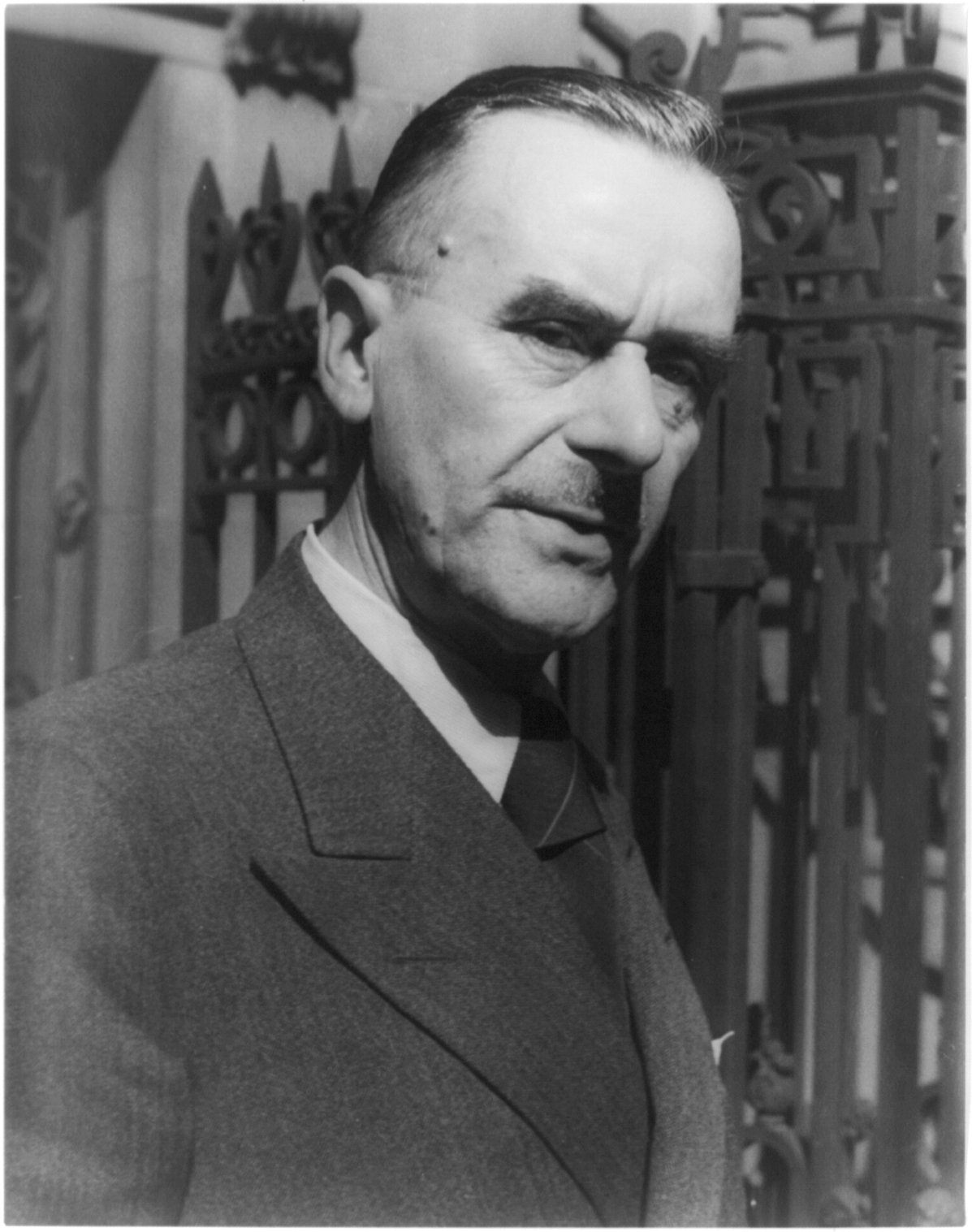„Ten, kto miluje viac, je podriadený a musí trpieť.“
Prisudzované výroky
Varianta: Ten kto miluje viac, je podriadený a musí trpieť.
Paul Thomas Mann bol nemecký spisovateľ, filantrop a esejista prvej polovice 20. storočia. V roku 1929 získal Nobelovu cenu za literatúru.

„Ten, kto miluje viac, je podriadený a musí trpieť.“
Prisudzované výroky
Varianta: Ten kto miluje viac, je podriadený a musí trpieť.
„Spisovateľ je človek, pre ktorého je písanie zložitejšie ako pre iných ľudí.“
Prisudzované výroky
Varianta: Spisovateľ je človek, pre ktorého je písanie ťažšie ako pre ostatných ľudí.
„Sklamanie je ako zmrznutá ruka: môže sa vyliečiť, ale vždy bolí.“
Prisudzované výroky
„Vojna je iba zbabelý útek od problémov v mieri.“
Prisudzované výroky
„Kto nepozná minulosť, nepochopí budúcnosť.“
Prisudzované výroky
"This War" (1939); also in Order of the Day (1942)
“The beautiful word begets the beautiful deed.”
Zdroj: The Magic Mountain (1924), Ch. 4
“A man’s dying is more the survivors’ affair than his own.”
Zdroj: The Magic Mountain (1924), Ch. 6
Letter from Naples, Italy to Otto Grautoff (1896); as quoted in A Gorgon's Mask: The Mother in Thomas Mann's Fiction (2005) by Lewis A. Lawson, p. 35
"Sleep, Sweet Sleep" [Süßer Schlaf] first published in Neue Freie Presse [Vienna] (30 May 1909), as translated by Helen T. Knopf in Past Masters and Other Papers (1933), p. 269
“Only he who desires is amiable and not he who is satiated.”
Bk. 1, Ch. 8
Confessions of Felix Krull, Confidence Man (1954)
Speech, "The War and the Future" (1940); published in Order of the Day (1942)
“Asia surrounds us — wherever one’s glance rests, a Tartar physiognomy.”
Asien verschlingt uns. Wohin man blickt: tatarische Gesichter.
Variant translation: Asia devours us. Wherever one looks: Tartar faces.
Settembrini in Ch. 5
The Magic Mountain (1924)
The Coming Victory of Democracy (1938), p. 14, translated by Agnes E. Meyer, Knopf (1938)
“O scenes of the beautiful world! Never have you presented yourself to more appreciative eyes.”
Bk. 2, Ch. 4
Confessions of Felix Krull, Confidence Man (1954)
Bk. 2, Ch. 4
Confessions of Felix Krull, Confidence Man (1954)
As quoted in Sculpting in Time (1996), by Andrei Tarkovsky, p. 56
Speech at the Prussian Academy of Art in Berlin (22 January 1929); also in Essays of Three Decades (1942)
“Disease makes men more physical, it leaves them nothing but body.”
Zdroj: The Magic Mountain (1924), Ch. 4
On a short story of the character, "Gustav Aschenbach". Ch. 2, as translated by David Luke
Death in Venice (1912)
Letter, (1950); as quoted in Thomas Mann — The Birth of Criticism (1987) by Marcel Reich-Ranicki
“Beer, tobacco, and music,” he went on. “Behold the Fatherland.”
"Herr Settembrini" commenting on Germany, in Ch. 4
The Magic Mountain (1924)
“Love as a force contributory to disease.”
The title of "Dr. Krokowski" lectures. Ch. 4
The Magic Mountain (1924)
Settembrini on the Magic Mountain Society, in Ch. 5
The Magic Mountain (1924)
“Human reason needs only to will more strongly than fate, and she is fate.”
Zdroj: The Magic Mountain (1924), Ch. 6